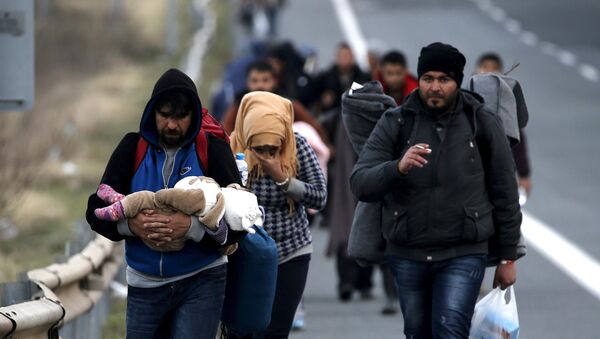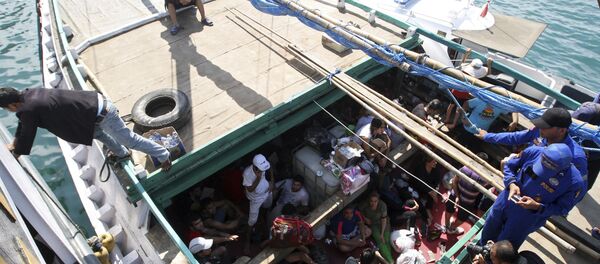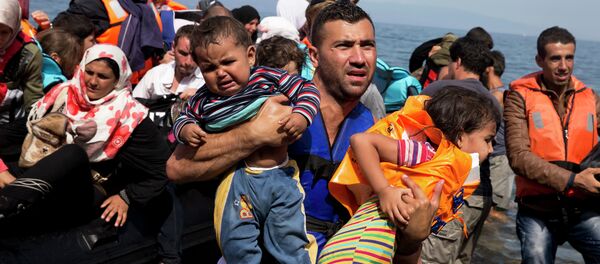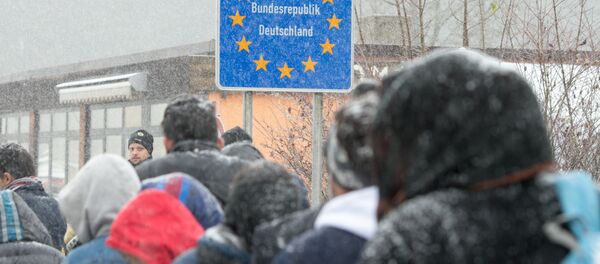The governments and society of those countries are not standing against a tremendous crisis.
Europe is not on the frontline of the global refugee crisis as one might think, an article in Slate.fr read. Media has been propagating this idea, with reports from the Hungarian border and images of fishermen boats filled to the brim with asylum seekers. However, the real situation is different.
In fact, the majority of displaced people live in countries which do not have resources for their accommodation. This trend looks persisting, and there is little chance it will be reversed.
Jordan is not rich in natural resources (especially in comparison with the oil-rich Gulf states). However, despite its small territory and limited resources, Jordan is flooded with refugees who fled from the Syrian war and the turmoil in Iraq.
By the middle of 2015, Jordan accepted 685,000 people, an impossible burden for a country with a population of 6.6 million. The UN Refugee Agency said that Jordan ranks second in the world in the number of asylum seekers – 90 per 1,000 residents. Lebanon ranks first, with an enormous 209 refugees per 1,000 residents.
As for now, Jordan is dealing surprisingly well with the situation, the article read. But how long will this last?
Very few countries (even rich) can deal with a migrant crisis of such a scale. According to the Council on Foreign Relations, the influx of refugees to Jordan has resulted in lowering wages and a rise in rent rates and unemployment, from 14.5 to 22.1 percent between 2011 and 2014.
According to experts, the wars in Afghanistan (since the Soviet invasion in 1979) have provoked mass displacement of people and played major role in the process of political polarization in neighboring Pakistan. Thus, a similar scenario cannot be ruled out for Turkey, and the consequences may be disastrous since Ankara is a NATO ally and the stronghold of stability along Europe’s southeastern borders.
The same concerns are growing for Africa, the author wrote. According to the UN, the conflicts in DR Congo, Sudan, South Sudan, Somalia, and Central African Republic will cause massive displacement of people on the continent.
If the wars continue the number of refuges may significantly grow in the coming decades, which will be a catastrophe for economic growth in Africa. It would be especially tragic taking into account the actual perspectives for growth in many African countries.
Of course, all of the above does not mean that there is no serious migrant problem in Europe, according to the article. But the European Union has enough resources to withstand the crisis. In fact, the difficulties the EU has faced due to the migrant influx may be the catalyst for positive changes, including stricter border controls, deepening political integration and a more diligent approach to the foreign and security policy.
At the same time, Jordan and many African countries are incapable of dealing with the crisis, at least all alone. The world’s richest nations (the US, Canada, and Japan, which are protected to some extent by their geographical position from massive migration waves) should understand that the actual process requires a cohesive global approach.
"In other words, they require a fair distribution of responsibility in providing refuges with shelter, more funds for the UN Refugee Agency, and persisting efforts for peace and prosperity across the globe," the article read.
The contemporary world is so interconnected that no part of it should be left in chaos and despair, the author concluded.





